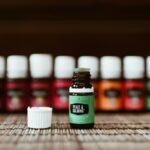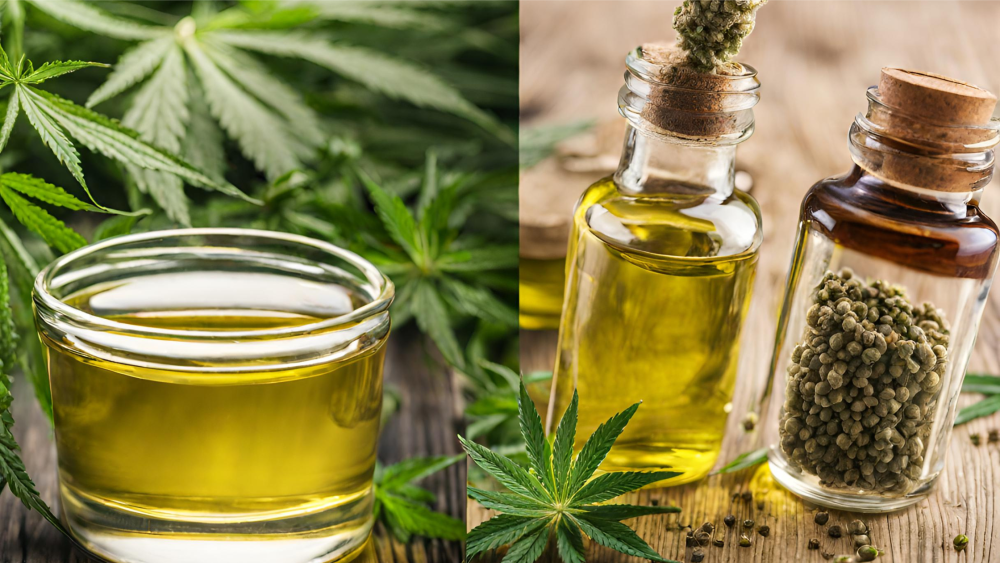
You’re going to find out about two products that have sparked a revolution in natural wellness: CBD oil and hemp oil. Both have surged in popularity, but it’s crucial to understand that they aren’t one and the same.
Despite their shared origins, CBD oil and hemp oil carry distinct properties and purposes. If you’ve ever been puzzled by these products, you’re not alone. I’m here to help you differentiate between the two, ensuring you can make a choice that aligns with your health goals.
In this guide, I’m going to walk you through what sets these oils apart from their botanical beginnings, cannabinoid compositions, to their practical uses. This isn’t just about grasping their differences; it’s also about discovering how each can benefit your life in unique ways.
So, if you’ve been curious about the buzz surrounding CBD and hemp oils, stick with me. We’re about to explore the diverse world of these oils, starting from the very plants they originate from. This deep dive into their botanical sources will set the stage for a clearer understanding of their individual characteristics.
Digging into the Source: Hemp Plant vs. Cannabis Plant
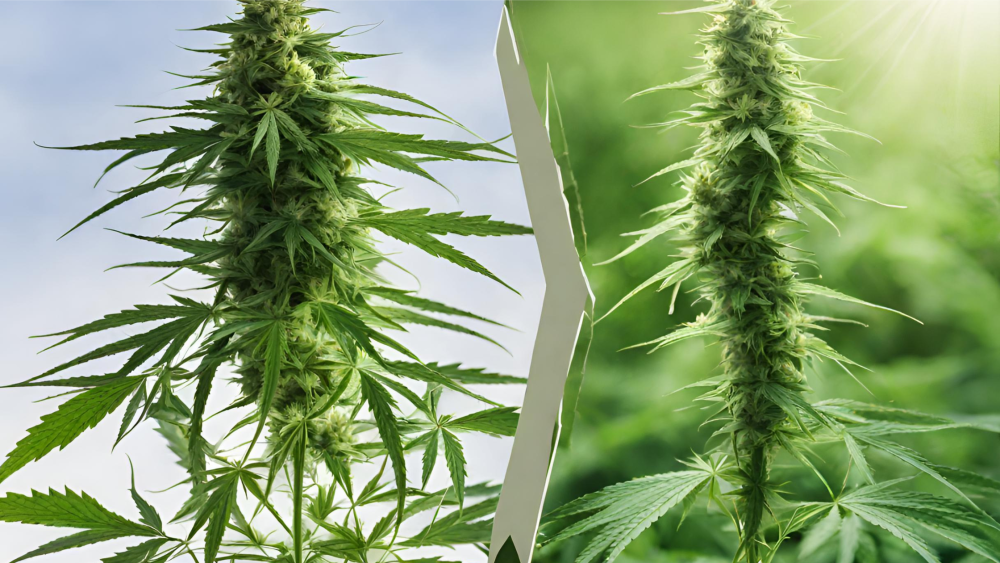 You’re probably aware that CBD oil and hemp oil come from plants, but not everyone knows that they hail from different types of the same species. So, let’s dig into the nitty-gritty of their origins. Picture two plants: hemp and cannabis. They’re like cousins in the plant kingdom, both members of the Cannabis sativa species, but they’re cultivated for distinctly different purposes and parts.
You’re probably aware that CBD oil and hemp oil come from plants, but not everyone knows that they hail from different types of the same species. So, let’s dig into the nitty-gritty of their origins. Picture two plants: hemp and cannabis. They’re like cousins in the plant kingdom, both members of the Cannabis sativa species, but they’re cultivated for distinctly different purposes and parts.
In comes the legal distinction: hemp is characterized by its low concentration of THC, the psychoactive compound that gives marijuana users a high. This difference is not just trivial; it’s enshrined in law. In many places, for a plant to be legally classified as hemp, it must contain no more than 0.3% THC. The hemp plant, revered for its sturdy fibers, is also the go-to source for the hemp oil used in food, beauty products, and as a nutritional supplement.
Now, CBD oil steps into the spotlight. Extracted primarily from the flowers, leaves, and stems of the hemp plant—which have a higher concentration of CBD, yet still maintaining that low THC threshold—CBD oil is celebrated for its wellness potential. Unlike hemp oil, which is often cold-pressed from hemp seeds, CBD oil utilizes more of the plant, tapping into a broader range of benefits.
As we navigate this botanical tapestry, you’re going to find out about the chemistry that sets these oils apart. The unique profiles of cannabinoids in each oil are pivotal to their individual characteristics—pushing the envelope on what nature offers for our well-being. This isn’t just about varied extraction methods; it’s also about the molecular makeup of the resulting oils.
Chemistry 101: Cannabinoid Content in CBD and Hemp Oils
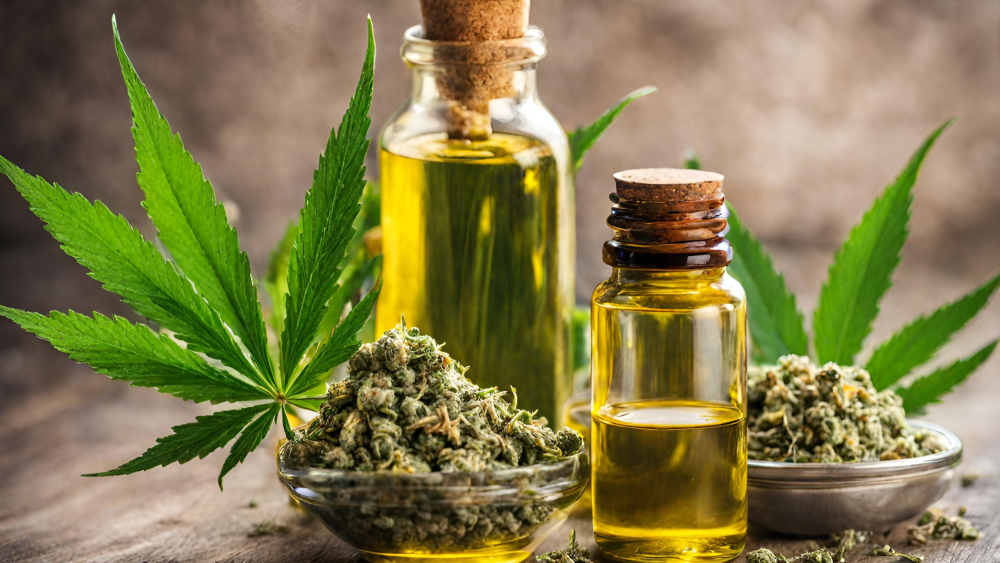 Let’s get down to the molecular level – cannabinoids play a pivotal role in differentiating CBD oil from hemp oil. Cannabinoids are unique compounds found within cannabis plants that interact with the endocannabinoid system in our bodies. These interactions can influence mood, pain sensation, and other important functions.
Let’s get down to the molecular level – cannabinoids play a pivotal role in differentiating CBD oil from hemp oil. Cannabinoids are unique compounds found within cannabis plants that interact with the endocannabinoid system in our bodies. These interactions can influence mood, pain sensation, and other important functions.
CBD oil boasts a high concentration of cannabidiol, a cannabinoid applauded for its therapeutic potential. On the flip side, hemp oil, derived mainly from the seeds of the hemp plant, has a much lower cannabinoid content. In fact, hemp oil often contains only trace amounts of CBD.
Now, you might wonder about the difference in health benefits. CBD’s rich cannabinoid profile makes it sought after for potential benefits, such as reducing anxiety and addressing chronic pain. Hemp oil may not be as cannabinoid-heavy, but it’s a powerhouse of nutrients, packed with omega fatty acids and antioxidants.
You’re going to find out about the respective applications of these oils in the next section. Just remember, their unique chemical makeup means they serve different roles in our health and well-being.
Practical Uses: How CBD Oil and Hemp Oil Enhance Your Life
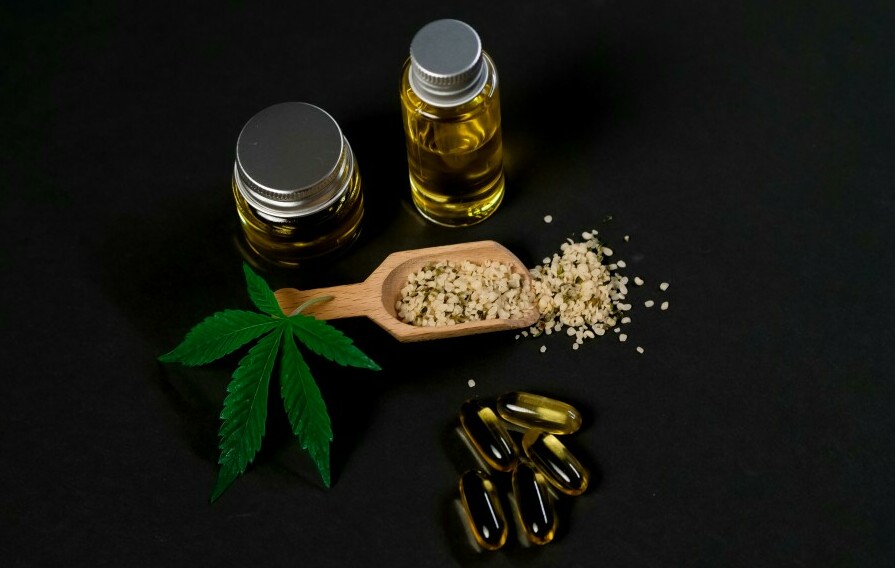 Now, I’m going to navigate the practical ways these oils can play a role in your wellness routine. It may surprise you that either could be the key to a more balanced, healthful life.
Now, I’m going to navigate the practical ways these oils can play a role in your wellness routine. It may surprise you that either could be the key to a more balanced, healthful life.
Let’s start with CBD oil. It’s not just popular; it’s known for its potential in relieving stress, managing pain, and promoting better sleep. If your life is anything like the fast-paced world most of us live in, these benefits can be significant. Looking beyond relaxation, CBD oil is often a go-to for athletes seeking muscle recovery and for individuals who desire a supportive complement for managing inflammation or chronic conditions.
Shifting gears, hemp oil often flies under the radar, but its nutritional profile is impressive. This oil is packed with omega fatty acids, which your brain and body will thank you for, and vitamins which support overall health. No small player in the beauty industry either, hemp oil can be a natural moisturizer for your skin, potentially reducing acne and leaving you with that glow you often see in product ads – only this time, it’s for real.
Don’t forget, these two oils can make their way into your kitchen as well. Hemp oil has a nutty flavor that gives a new dimension to your salad dressings, while CBD oil can be a wellness booster when added to your tea or smoothies.
Choosing between CBD oil and hemp oil isn’t a battle for supremacy; it’s about aligning with your personal health goals. Whether that’s seeking relief from arthritis pain with CBD or enriching your diet with the nutrients in hemp oil, each has its area of expertise. Think about what resonates with you as we explore how to choose the best product for your needs in the next section.
Making an Informed Choice: Which Oil is Right for You?
You’re going to find out that choosing between CBD oil and hemp oil isn’t just about their differences; it’s also about your unique health goals and preferences. If you’re looking for targeted therapeutic benefits and are interested in exploring the potential of cannabinoids specifically, CBD oil might resonate with you.
Alternatively, if your focus is nutritional enhancement with a side of skin and hair health, hemp oil could be the go-to. Keep in mind, the legality of CBD oil varies by state and country, so that’s going to include doing a bit of homework on your local regulations.
When shopping for either CBD or hemp oil, always seek out reputable brands that provide transparent sourcing and third-party lab testing. This is a surefire way to trust that what’s on the label is what’s in the bottle. Remember, your first attempt doesn’t need to be your last – you can always adjust your approach down the road.
I’m here to help you make an empowered decision based on knowledge, not just marketing claims. So my suggestion? Choose something that aligns with your wellness journey. As for quality assurance, that’s where diligent research steps in.
I really hope that you now feel more confident in understanding the unique qualities and benefits of CBD oil and hemp oil. There’s a lot of opportunity in both, whether you’re seeking balance, a healthful boost, or a specific remedy. Now, you’re well-equipped to make a choice that truly suits your needs.





